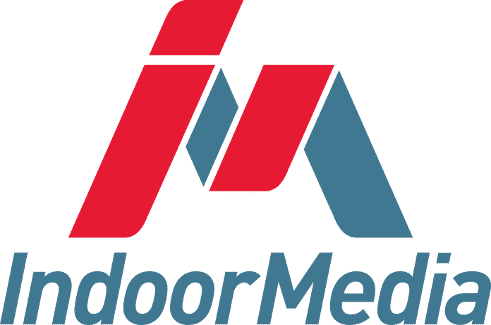Whether you’re connecting with customers on social media or playing email tag with important clients, every small business owner needs to organize their life online.
When you’re first starting, creating and maintaining social media profiles can seem overwhelming — but that’s just the beginning. Once you’ve built out your best version of your business online, you’ll need to find the right tools to handle daily life.
Many people don’t realize that “apps” are not all just Facebook and Instagram. Today, applications are simply programs that can either streamline daily tasks or allow you to access a specific, online community.
Small business owners know that it is crucial to take advantage of all the tools at their disposal, so read on for the best apps for managing your company’s day-to-day.
7 Apps For Small Business Owners
- Boomerang
- Asana
- Canva
- Tailwind
- Freshbooks
- Evernote
- Dropbox
Boomerang
Sometimes there just aren’t enough hours in the workweek. Even if you manage to sneak in some extra work on the weekends, you may need to wait until Monday to send out the requests or follow-ups you’ve drafted.
Boomerang is a great app because it allows you to schedule emails straight from your Gmail account. Once you’ve installed the plug-in, you’ll be able to write drafts in Gmail as usual, then schedule them to go out whenever you need.
That way, instead of waking up extra early to hit the send button, you can rest assured that your emails will fly out the door at precisely the second you scheduled them to do so.
Asana
In 2020, more and more businesses switched to working remotely and brought on freelancers for virtual projects. It can be challenging to organize project schedules for your entire team and keep track of what everyone is doing, but Asana makes it easy.
The app allows you to outline tasks on a calendar, which your coworkers can then edit. Whether it’s simply a means of keeping up with buying, advertising, or tracking down old clients, it’s a great way to plan out your workweek.
Canva
When you’re launching a social media campaign, it’s essential to learn how to edit your photos. Casting gourmet eats behind the wrong filter may dull their appearance, and showing off your salon’s handiwork may go unnoticed under poor lighting.
Luckily, Canva is a super intuitive way to alter photos outside of complicated programs like PhotoShop. It allows you to reach one step further than you’d be able to with traditional iPhoto or Instagram editing, so you’ll definitely want to use it to create your small business’s social media content.
Tailwind
One of the best social media platforms for salons and boutiques is Pinterest — but it can be confusing when you’re first getting started. Learning to use the platform is one thing, but discovering exactly how to tag and optimize your posts is another.
Luckily, the geniuses behind Tailwind created a program that can quickly boost your content, so it shows up to the right audiences. Many users have created helpful video tutorials to ease new users onto Tailwind, so be sure to search for an issue whenever it arises and take advantage of helpful advice where you need it.
Freshbooks
As a small business owner, you’ve already got plenty on your plate regarding the day-to-day tasks in running your business. Trying to organize invoices and outgoing payments is another disaster in itself and can quickly become too difficult to track.
Get ahead of the mess by installing Freshbooks, which can help you keep track of all the work you have to do behind the scenes. The program can even help you pay employees, track your expenses, and create proposals that you can send out for signatures.
Mastering this program may take a little time initially, but it will be worth it if it means saving on an accountant.
Evernote
Too often, the creative side of business-planning falls to the wayside. On these occasions, it can be easy to look back with frustration and wonder why you didn’t have the means to organize your ideas like you would your expenses.
Whether it’s simply a means of recording your social media content brainstorms or recipe-planning, it’s probably time to invest in something a little nicer than the Notes app.
Evernote is an excellent platform for keeping all your ideas in one place and allows for better formatting than just the notes app alone.
Dropbox
While you may be skeptical of this tool at first, it can save you a massive headache down the line. Dropbox is a means of sending, saving, and keeping track of large amounts of files in one place.
It’s a great way to receive 100 restaurant photos from a photographer or keep every version of your menu in one place. When it comes time to update your logo, it’s an excellent platform for keeping every mockup in one place and quickly downloading new files from potential designers.
Other Tools
At the end of the day, there are some things you just can’t do online. Traditional methods will continue to prevail, and print mailers will undoubtedly arrive in your mailbox.
One way to cut through the noise and harness the tools available to you is to look into grocery store advertising. Through this medium, you can plan and launch your campaign in a grocery store close to your store, where thousands of customers will see your supermarket advertisement each day.
Through programs like coupon-receipt advertising, you can launch one grocery store advertising campaign that every single shopper will walk out of the store with. This platform also allows for hyper-local targeting, as your supermarket advertisement is sure to go home in the pockets of your neighbors.
Most grocery stores draw thousands of shoppers each week from just a three-mile radius of the store, so it’s crucial to figure out exactly where you want to advertise. From there, design your coupon or flier and get ready for the impressions to roll right in.


 By IndoorMedia Marketing
By IndoorMedia Marketing
